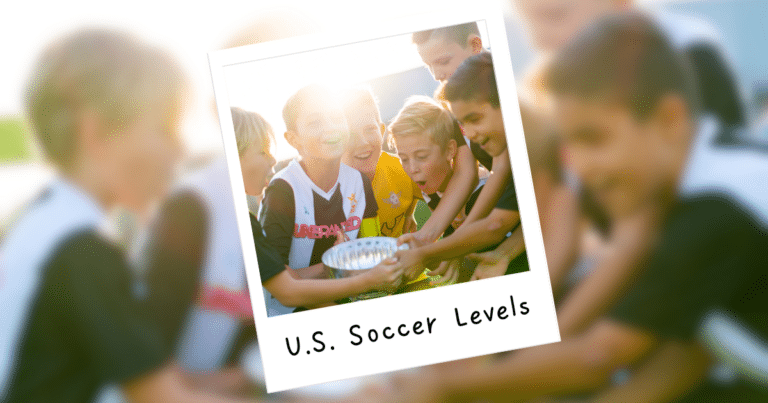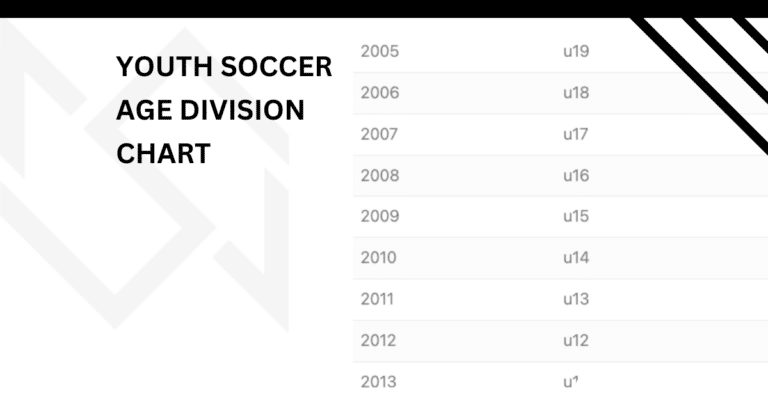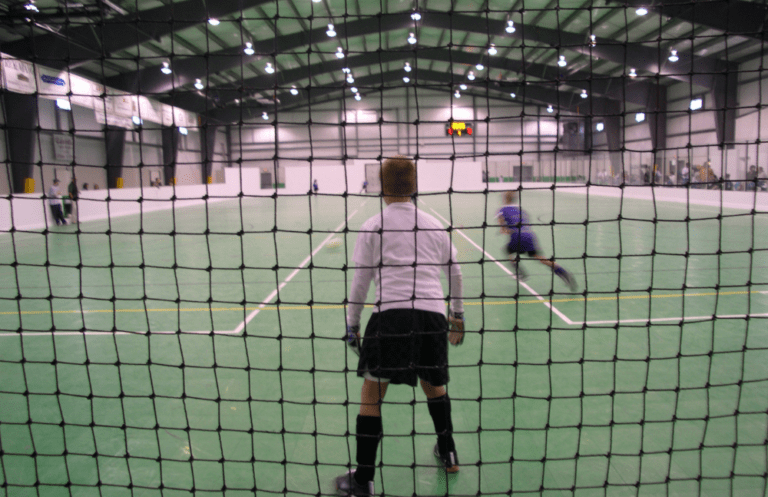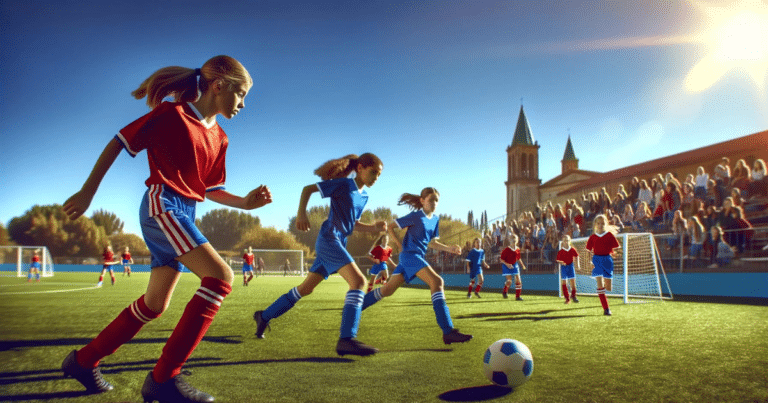Improve Decision Making in Soccer
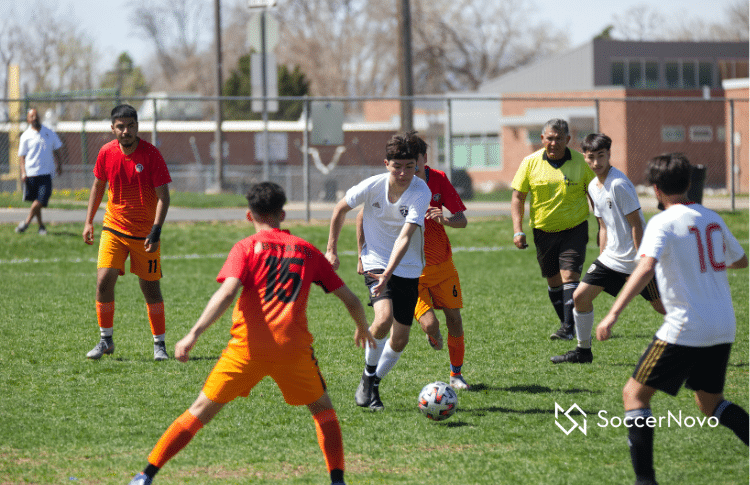
By improving decision making skills in soccer, players can be one step ahead of their opponents. Decision making is truly an underrated part of any sport.
Making quick decisions on the fly can be the difference between a goal and a turnover. But, sometimes, players often struggle with their abilities to make decisions. This is usually a combination of a lack of confidence and not using the part of the brain often.

In this article, we will explore some effective ways to improve your decision-making skills in soccer.
Understanding Soccer Decision Making
Soccer is a game of many quick decisions. Players must analyze various options in real-time and choose the most effective course of action.
Good decision-making is essential to success in soccer. It involves assessing the game situation, anticipating opponents’ moves, and executing intelligent choices to achieve strategic objectives.
From the sidelines watching games, elite players are great decision makers. They often see what others don’t and then take immediate action. I believe this is what separates the good players from the great ones.
Characteristics of Soccer Decision Making
Here are some of the key characteristics of decision making in soccer:
- Speed: Players must be able to analyze the game situation quickly and make the right decision within a fraction of a second.
- Accuracy: A wrong decision can lead to a loss of possession or a goal for the opposing team.
- Anticipation: Good soccer players are always one step ahead of their opponents. They must anticipate the moves of their opponents and be ready to react quickly.
- Creativity: Soccer is a game of creativity. Players must be able to come up with new and innovative solutions to problems on the field.
- Confidence: Confidence is key to good decision making in soccer. Players who believe in themselves are more likely to make the right decisions on the field.
Factors Affecting Soccer Decision Making
Several factors can affect soccer decision making. These include:
- Game Situation: The game situation can have a significant impact on decision making. For example, a player may make a different decision when they are in front of the goal than when they are in the midfield. Or, they may need to decide whether they should dribble or pass.
- Opponent’s Moves: A player must be able to anticipate the moves of their opponent and adjust their decision accordingly. This must be done in a fraction of a second or they’re beat.
- Team Strategy: A player must be able to make decisions that align with the team’s overall strategy.
- Player Position: The position of a player on the field can also affect decision making. For example, a defender may need to make different decisions than a forward.
Trusting Your Instincts in Soccer
Trusting your instincts (and not overthinking things) is crucial in soccer. When you are on the field, you need to make split-second decisions that can have a significant impact on the game. Your instincts can help you make those decisions quickly and accurately.
Trusting your instincts means relying on your intuition and experience to make decisions. It is a skill that can be honed through practice and repetition. The more you play, the more you will develop a sense of what works and what doesn’t.
One way to develop your instincts is to watch and learn from other players. Pay attention to how they react in certain situations and try to replicate their decision-making process. You can also practice decision-making drills that simulate game situations. This will help you develop your instincts and improve your decision-making skills.
As an aside, it’s important to note that trusting your instincts does not mean making impulsive decisions. You should still assess the situation and consider all available options before making a decision. However, when time is of the essence, trusting your instincts can help you make a quick and effective decision.
Improving Individual Decision Making Skills
To become a better soccer player, you need to be continuously improving your decision making skills. In this section, we will discuss some ways to improve them.
Improving it in ‘Real Life’
Honestly, I think the best way to improve your decision making muscles is to make a proactive effort in every decision, not matter how small it might seem. For example, if someone asks you whether you want a red or yellow Gatorade, let them know right away which one you prefer. Should you make your bed now or later? Make the decision to do it now and proceed to make the bed! Do this over and over in your life to sharpen your decision making skills.
This alone ☝️ will help you make quicker decisions on the soccer field and in life!
Developing Tactical Awareness
Tactical awareness is the ability to read the game and make the right decisions based on what is happening on the field.
To develop this skill, you need to watch professional soccer games and analyze the players’ movements and decision making.
You can also practice situational drills with your team, where you are put in different game scenarios and have to make quick decisions based on the situation.
Enhancing Technical Skills
In order to find success on the soccer field, you need to have good ball control, passing, and shooting skills to make the right decisions on the field.
To enhance your technical skills, you should practice your ball control, passing, and shooting regularly. You can also work with a coach or attend soccer camps to improve your skills.
Boosting Physical Fitness
Believe it or not, improving your physical fitness is vital to being a better decision maker. You need to have the stamina and endurance to keep up with the game and make quick decisions.
When the body is fatigued so is the mind. That sounds like some Yoda words but it’s true!
Use of Technology to Improve Decision Making
Technology has become an essential tool for coaches and players to improve their skills. Here are two ways technology can help improve decision making in soccer.
Video Analysis
Video analysis is a powerful tool that can help players and coaches analyze their performance. By reviewing footage of games, players can identify their strengths and weaknesses and make adjustments to their game.
Coaches can use video analysis to identify patterns and trends in the team’s performance and develop strategies to improve decision-making skills.
Video analysis can help players and coaches in several ways:
- Identify patterns and trends in the team’s performance
- Analyze individual player performance
- Identify areas for improvement
- Develop strategies to improve decision making
Final Thoughts
I hope this helps you understand the importance of decision making and how you can improve it! It will take time but eventually, that part of your brain will get stronger.
You’ll be able to see the field better, anticipate quicker, and become a more well-rounded player!
By being a smarter player, you can make up for any physical differences between your opponents. As a coach, I would rather have a player who is mentally sharp than a player who can bulldoze kids.

Written By: Beau Bridges
Beau is the founder of SoccerNovo, dedicated to helping players and parents navigate the youth soccer landscape. As a former youth coach and soccer parent, he shares insights on player development, recruiting, and the ever-evolving soccer scene in the U.S.
Let’s connect


